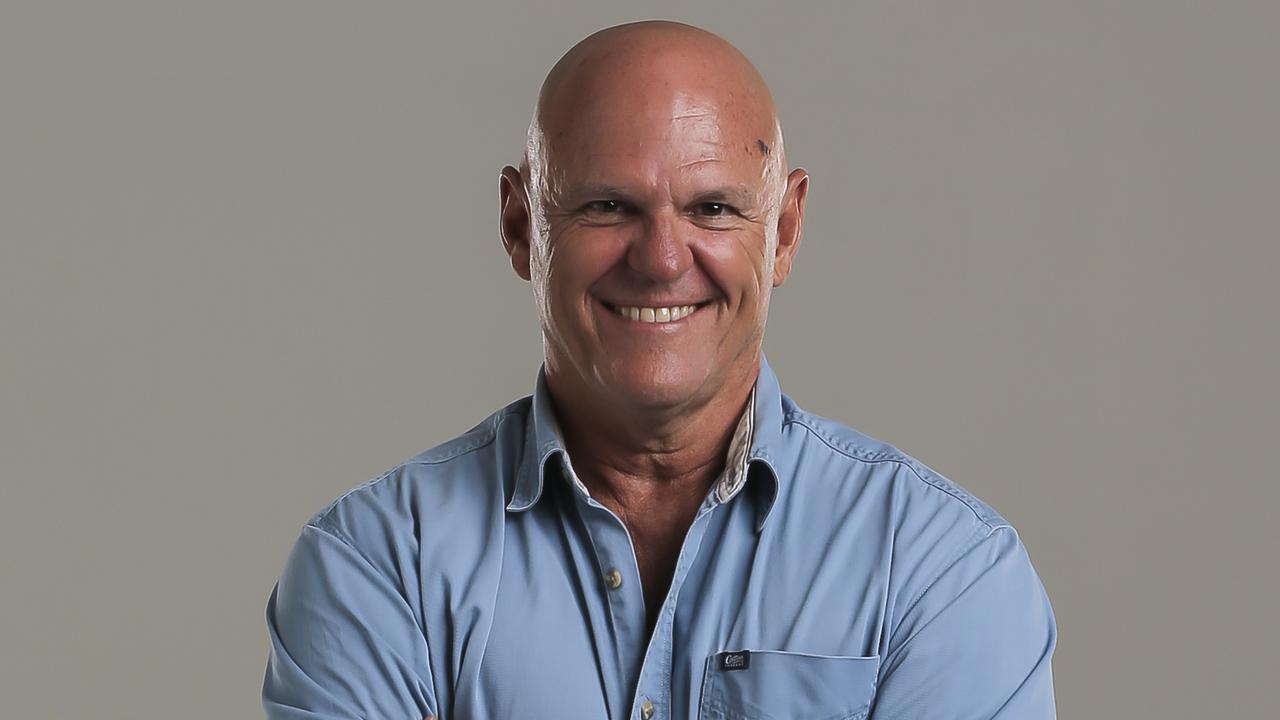Opinion: Community rallies to support devastated family after tragic death in driveway
AN INNER Brisbane community has rallied around a migrant family after their unimaginable loss in a driveway tragedy, writes Kylie Lang.

Opinion
Don't miss out on the headlines from Opinion. Followed categories will be added to My News.
THE notion that neighbourhoods are dying as community spirit is quashed by me-first mentalities would suggest that humankind is heading for the scrap heap.
But never underestimate the power of people to show compassion and to rally when it counts most.
Today, little Elisha Batu, the precious two-year-old accidentally run over and killed by her father in the driveway of their Clayfield unit eight days ago, will be farewelled at a funeral service in Brisbane.
There will be teddy bears, tulle and sparkly stars in the hearse as she makes her final journey on this Earth.
Her Burmese refugee parents, Jeremiah Batu and Wah-eh Htoo, are understandably shattered, but they are finding comfort in the avalanche of community support, particularly from people they’ve never met.
Dozens of relatives have flown in from around Australia to console them, yet it is the kindness of strangers that has overwhelmed them.
Since the unthinkable happened about 5.30pm last Friday, members of the 4007/4011 online notice board – taking in the postcodes of Ascot, Hamilton, Clayfield, Hendra and Albion – have sprung into action.

Last Saturday morning, young mum Julie Sowter established a GoFundMe page with a $30,000 goal, to enable Mr Batu to take time off from his factory job to grieve with his wife and eldest daughter Cynthia, 5, who is in Year 1 at Eagle Junction State School.
As of last night, more than $6360 had been received.
White Lady Funerals, Clayfield, has offered its services for free; Hendra Flower Market is doing the blooms; and Clayfield Markets and Little Paul’s cafe in Albion have joined an army of home cooks to supply meals and refreshments for the family and their extended clan.
Harcourts real estate agent Jacqui Bartholomeusz, who handed the family the keys to their new apartment 40 minutes before the tragedy unfolded, says the landlord has insisted on returning the rent and bond, knowing “they couldn’t possibly live there now”.
Mr Batu and Ms Htoo moved to Brisbane in 2015.
Since coming to Australia, via India, where Mr Batu spent several years after fleeing Burma (now Myanmar), he has always held down a job but, being unskilled, the wages are low and the family struggles financially.
There is a misconception that everyone who lives in or around Ascot is wealthy. Not so, but there are plenty of people juggling rents, mortgages and rising living costs who are willing to give.

Hendra women Tricia Steffen and Jane Cameron run the 4007/4011 Community Noticeboard Facebook site, set up in 2016 when Tricia was recovering from a double mastectomy and needed something to keep her occupied. One-year cancer free, Tricia still spends up to two hours a day, as does Jane, managing the 4000-member site. From it have sprung walking groups, movie clubs, a buy-and-sell platform, and a lost-and-found pet network.
Threading through all of this is a strong sense of community. Last year when one woman had to flee a violent relationship and set up a secret home, locals donated everything she needed, with Tricia’s front yard the drop-off point for goods.
Jane says the noticeboard has “opened the gates into each other’s lives” and is an “opportunity for people to feel that they belong and matter”.
Being social – as social media was originally set up to facilitate – is a fundamental human need, and compassion links us in a powerful and beautiful way.
The “collective agency” of neighbourhoods – which enables residents to come together to respond to challenges – must not be underestimated.
At a time when economic pressures and under-resourcing of services are creating division and rising inequality, it falls to residents to be resourceful, according to a 2016 research paper funded by the Social Sciences and Humanities Research Council of Canada.

“Neighbourhood collective agency strengthens the optimism, pride, belonging and connection that are eroded by inequality; it brings neighbours together to improve their immediate local conditions,” it says. Responses range from neighbours sharing support and resources, to groups joining to demand change.
In their book The Abundant Community, social policy experts John McKnight and Peter Block argue that consumerism is unravelling the social fabric that binds our neighbourhoods. We are being trained to outsource and become clients of big business, rather than citizens responsible for our own lives. This is a slippery slope and cannot possibly meet the pressing needs of those around us.
When I sat down with Elisha Batu’s desperately sad parents on Thursday, they spoke of their heartbreak and disbelief at what had happened to their baby girl.
But they also spoke of their enormous gratitude for the generosity of people who didn’t need to care, but who made a point of doing so.
Neighbourhoods will survive and prosper for as long as the people in them commit to positive and decisive action.



